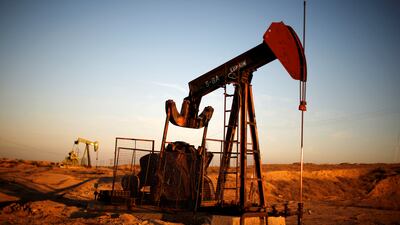Oil prices jumped on Monday on the back of supply disruption concerns linked to the rise in geopolitical tensions in the Middle East and Eastern Europe, while demand held steady as the impact of the Omicron coronavirus strain eased in some countries.
Brent, the global benchmark for two thirds of the world's oil, surged 0.88 per cent to $88.66 a barrel at 9.26am UAE time on Monday while West Texas Intermediate, the gauge that tracks US crude, was trading 0.78 per cent higher at $85.80 a barrel.
“The pulse continues to sit firmly with oil bulls, given the robust physical market, with optimism over Covid-19 pivoting from pandemic to endemic,” said Ehsan Khoman, head of emerging markets research at MUFG Bank.
“With stockpiles falling, bullish investor positioning rising, spare capacity increasingly scarce and geopolitical tensions lingering, the outlook for oil prices cannot be more positive right now.”
The UAE, Opec's third-largest producer, that it intercepted two ballistic missiles launched by the Houthi terrorist group, the Ministry of Defence said on Monday.
Authorities confirmed "that the attack did not result in any casualties, as the remnants of the destroyed ballistic missiles fell in separate areas around the emirate”, state news agency Wam reported.
Tension is also increasing in Eastern Europe. Britain’s Deputy Prime Minister Dominic Raab issued a warning that there is a “very significant” risk Russia will invade Ukraine imminently. The US also ordered the families of diplomats to leave Ukraine amid rising tensions between Washington and Moscow.
“Brent is up over 10 per cent this month, almost 25 per cent above [the] 2021 average, and back at levels not seen since 2018 and 2014,” said Hasnain Malik, head of equity research at Tellimer Research.
“Drivers are supply risks, lower inventories [and] less Omicron-demand concern.”
Geopolitical risks should fade but low capital expenditure, resulting from a focus on the renewable energy transition, is expected to persist, he said.
The total investment in the upstream sector of the oil and gas sector fell 23 per cent below pre-coronavirus levels to $341 billion in 2021 amid global renewable energy transition efforts, according to a report by the International Energy Forum last month.
Opec+, the producer group led by Saudi Arabia and Russia, is also restraining production to support oil prices.
The group decided to add 400,000 barrels of oil per day next month amid higher demand globally.


